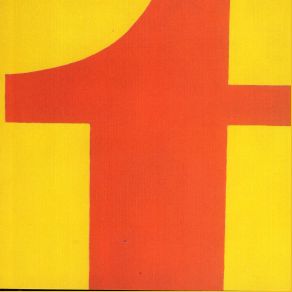Esteem: Live In Paris, 1975
Download links and information about Esteem: Live In Paris, 1975 by Steve Lacy Quintet. This album was released in 2006 and it belongs to Jazz, Avant Garde Jazz, Avant Garde Metal genres. It contains 6 tracks with total duration of 01:19:47 minutes.

|
|
|---|---|
| Artist: | Steve Lacy Quintet |
| Release date: | 2006 |
| Genre: | Jazz, Avant Garde Jazz, Avant Garde Metal |
| Tracks: | 6 |
| Duration: | 01:19:47 |
| Buy it NOW at: | |
| Buy on iTunes $9.99 | |
| Buy on Amazon $8.99 | |
| Buy on iTunes $9.99 | |
Tracks
[Edit]| No. | Title | Length |
|---|---|---|
| 1. | The Crust | 20:28 |
| 2. | The Uh Uh Uh | 12:38 |
| 3. | The Rush | 3:59 |
| 4. | Esteem | 14:49 |
| 5. | Flakes | 8:54 |
| 6. | The Duck | 18:59 |
Details
[Edit]This volume in Atavistic's Unheard Music Series is a smoking transitional gig from the Steve Lacy Quintet live in Paris in 1975. The band featured Lacy on soprano, saxophonist Steve Potts, bassist Kent Carter, Irène Aebi on cello and violin (no vocals), and percussionist Kenneth Tyler — in other words, half of the members of the great Steve Lacy Sextet that came together later are here. This music is truly previously unheard in that it was made available from the late saxophonist's cassette archives by Aebi, his widow. It was recorded during an extended engagement at La Cour des Miracles, a club in Paris that the band frequented in those years. Sans piano, there is a great space in the middle of this music; it is a space filled by the soloists to be sure, particularly Potts, who is simply wild in both his harmonic invention and in his free playing. Lacy actually takes a back seat on some of these tunes, which would become memorable compositions, such as the title track, "The Uh Uh Uh" (a tribute to Jimi Hendrix), and the opener, "The Crust," both of which stretch well over ten minutes. The recording's closer, "The Duck," is nearly 20 minutes long. There is a great deal of angular out-and-out blowing on these sides. Lacy's own solos play to the lyrical (and humorous) aspects of his tunes, while Potts moves them a step or two further down the line and Aebi creates a bridge with her own improvising. The bass on "The Uh Uh Uh," as it melds tightly in between the horns, is downright funky in places, and Aebi's bowed cello creates a droning elegance that becomes a platform for the improvisations that follow. The songlike nature of the shorter pieces, such as "The Rush" and "Flakes," owes as much to Lacy's infatuation with the Master Musicians of Jajouka as to Thelonious Monk. But nonetheless, Lacy was stretching the very fabric of what lyricism was in these pieces, offering the free jazz approach to anchor them in the contemporary — when it wouldn't have been necessary, as they were so far out there on their own. The sound quality on this set is somewhat dodgy — though everything is perfectly within the realm of hearing — because they were inexpensive and informal recordings taken from the stage. That said, Esteem offers a unique bird's-eye view of a band at the height of its powers, and a composer coming to grips with just who he was as a writer.